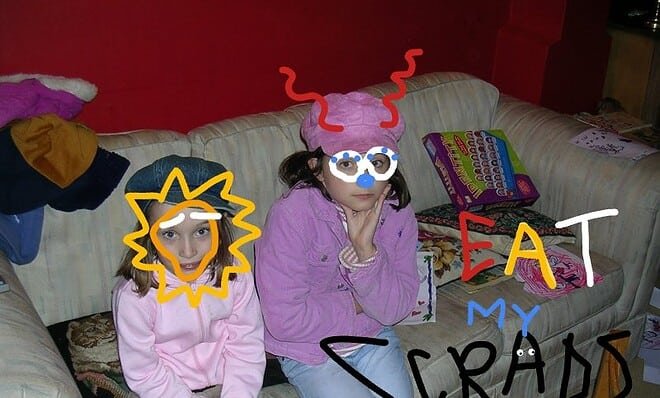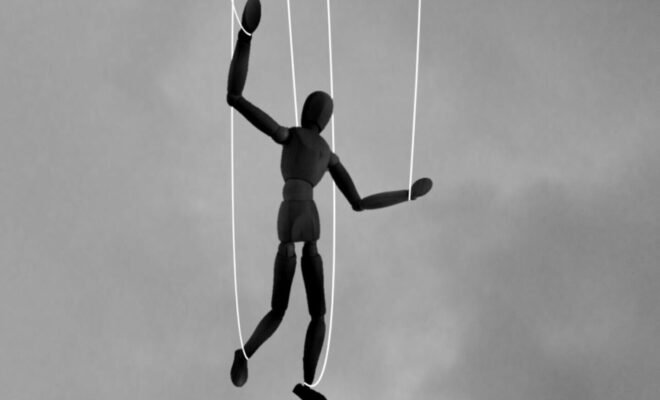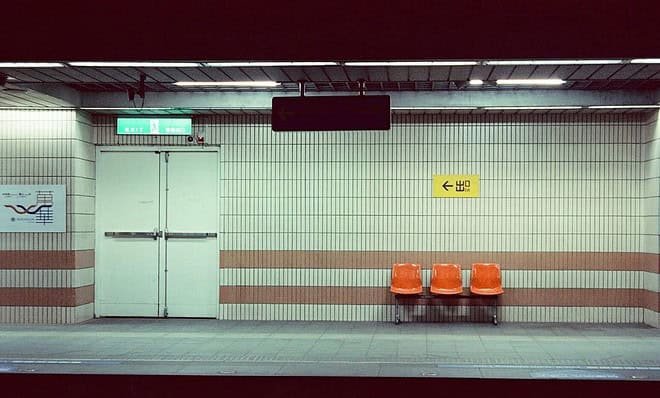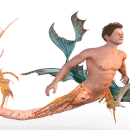The Other Exciting Conclusion

- The Other California Incident
- The Other Exciting Conclusion
After everyone had blinked a couple times, Rilke imagined a mountain stream, fixated on the way the cold water splashed through the fine, sparkly gravel and sand that lay at the bottom of the bed, the sediment that had been carried on an extensive underground journey via subterranean crevasses and fissures in the bedrock. He glanced at Kyle, who wiped that look off his face long enough to nod that he received the message, but couldn’t understand it either. Hands plunged into the silt they were focused on and shook it, revealing shining yellow pebbles under the water’s surface.
“You need gold?” Rilke breathed incredulously, “Like the Anunnaki?”
“Wait, are you teaching us to pan for gold?” Kyle questioned. “Two people aren’t going to strike it rich splashing around in the creeks out there. We’re a couple of centuries late for that.”
New images flashed through their minds. Instead of them learning to find the minerals from the first-person perspective, they saw a multitude of backs bent over the stream, sifting through the debris.
Rilke chuckled. “Ok, enslaving more of humanity is one idea. I don’t know if we can accomplish that. But here’s another thought.” He walked to his dresser and snatched a ring from the top. “Is this what we need?” He deposited it into the alien’s palm.
As Gray studied the ring, and with telepathic contact bridging gaps in interpretation, as much excitement as they’d seen its display showed on its face. Its eyes grew wide and its mouth stretched imperceptibly to where its ears should have been. When it looked up, Rilke had the distinct impression that his limbs were attached askew and his joints bent the opposite way.
“This is the wrong shape?” he asked. Then in an aside to Kyle, “We can reshape gold, can’t we?”
“Sure, that’s not a problem. It’s soft and malleable.” He turned to Gray. “What do we need to make it into?”
There were images of a furnace, fiery red, with a heavy iron cup suspended in the center. The ring rested in the cup as the fire grew hotter and hotter. Rilke was amazed by the amount of information that could be conveyed: he had a distinct impression of the fuel’s composition as it was being consumed, and if he concentrated, he would feel the temperature in a range of degrees Kelvin.
But Kyle cut the images off. “Yeah, yeah, I know how to melt gold. But what will it be when we’re finished?”
The metal formed into a thin line, stretching off toward infinity in both directions.
“We can buy gold wire. That would be a thousand times easier than trying to turn a ring into wire and maintain a consistent gauge,” he promised.
The line was joined by a second. Each wound itself into a stairway of obverse tessellating S-shapes. They moved to interact. For a moment, Rilke thought Gray was getting at a double-helix pattern, but they continued to refract across an axis of symmetry until they closed completely, becoming ovals and interlocking in a single long formation.
“So, a chain?” Rilke surmised. He returned to his dresser and scooped up an ankh necklace, which he dangled in front of Gray. “Like this?”
The alien held its three-fingered hands up and spread them apart while helping its human friends imagine the links stretching.
“Hold on a second,” Kyle murmured, disappearing around the corner of the door. He returned, holding aloft a dazzling, overstated monstrosity with curbed links that were at least eleven millimeters long and sixteen gauge and hung with a huge, gaudy, eagle pendant. Functioning on so little sleep and thankfully having never seen him wear it, his audience couldn’t be completely sure he had procured it from his bedroom and did not have a portal to the set of a rap music video hiding further down the hallway. “It’s ugly, but it’s twenty-four karat. And I can’t think of a better use for it than fixing your spaceship.”
This time, Gray’s smile could be seen by the naked eye.
The drive back to the UFO was filled with debates about whether Rilke could return home with Gray. The definition of “one-person spacecraft” was amended to include “is not bigger on the inside” and the physics of the flight to Zeta Reticuli was explained to the degree that everyone understood the discomfort any half-assed stowaway attempts would cause. By the time they reached the familiar access road, however, even Rilke had stopped arguing.
Everyone held their breath as they hiked to the improvised hiding spot, each step adding to the crushing fear that special operations teams had in fact shown up after they’d left and whisked the craft off to Wright-Patterson Air Force Base, leaving no trace of their incursions and no recourse to reclaim it. Rilke descended into the ravine with his heart in his throat. With effort, he remembered their short trek when he didn’t immediately see the malformed blob of branches that throbbed with the weird green light. Their attempts at concealment were marginally better than plunking the flying saucer downright next to the entrance.
They panicked when they came to the remains of the brush pile and found it scattered, revealing a conspicuously empty and mundane hillside. With their mouths in the same O of surprise, they formed a circle looking at each other in case anyone who’d arrived together had somehow garnered more information than themselves. Then they broke into a helter-skelter run, frantically hoping for anything but their worst fears to be true, and searching with more fervor than skill, until a deer caught everyone’s attention at once. Between the leaves of the thicket it left, they saw a familiar glow. In haste to flee the chaos, the deer had kicked the side of the ship and sent it wobbling into the open.
Rilke and Kyle looked at each other. “Forgot to put on the parking brake!” they intoned in unison.
Relief flooded over them. Rilke tried to bring everyone in for a group hug, but confusion from Gray suggested that was not a concept they had in the vicinity of Zeta Reticuli. Instead, it sent flashes of colorful bursts that were not entirely unlike fireworks.
Gray ran its fingers along the etched equatorial line Rilke had missed in his inspection of the UFO and then the bottom of the meridian. The craft’s sleek shell cracked and a rectangular panel slid out. It drew a train of instruments with bulbs flashing in countless colors. There were configurations and multiple cables that trailed about. It looked like it could augment the time and relative dimension in space of the assembled group.
Halfway up the left side of the row, Gray pulled open a hatch beneath a set of keys that strobed more intensely than the others around it, revealing the pattern of resistors and capacitors inside. From among these it unwound and held aloft a charred section of interlocked gold wire that was almost identical to Kyle’s gaudy necklace, considering it was produced thirty-nine light years away. The humans laughed out loud, making the most noise at the time of the greatest need for secrecy, a quality Mark Twain cited as particular to buffoons and the bad writing in the Leather Stocking Tales.
Rilke watched as Gray wound the chain into the pins to complete the path of the circuit. “So what does this do? Did we fix your engines? Your shields?”
In his mind, he saw the Earth from space, a spinning swirly blue marble, getting smaller. Then, he got the impression of too much heat, like forgetting to wear sunscreen, so intense his face felt red. It broke, but relief lasted only a moment before it resurged. By then, he had the gist and put his hands up in surrender.
“The radiation belts?” He gasped. “The Van Allen radiation belts? The two bands of radiation that surround the Earth? We fixed the shielding that lets you pass through the Van Allen belts?”
Kyle missed the significance. “What’s up with the Van Allen belts?”
“They keep humans from leaving low Earth orbit,” Rilke clarified, enthralled by Gray’s ministrations. “We can’t cross them. It’s the first problem I ever wanted to solve. I’ve been thinking about it since I was a kid and I’ve never come up with any ideas.” He reached out to caress the cool metal between the panels of keys, some of the unlit bulbs that seemed to be ordinary glass, places his sense of wonder told him were common enough his fingers wouldn’t cause a malfunction from the casual contact, anything to embrace the technology without a sonic screwdriver, even if what he was doing to it was meaningless. “So,” he managed to get out, “how does it work?”
Gray tried to explain the system to Rilke while it made the repairs. It showed him the ship, the ship within a ball, the ball folding over on itself many times. Gray switched tactics and started with the motherboards that were visible, explaining the concepts beginning with the circuitry and working its way up, but the gaps in technology were too great and it didn’t take long to confuse the human coming from that direction either.
All too quickly, the spaceship was fixed, and the alien was ready to be on its way. The plethora of unimaginable technologies was retracted back into the body of the craft. The hull appeared seamless once more, an unbreachable protector of its secrets.
With its efforts concluded, Gray opened the entrance hatch and the bright light spilled out. It turned to them and raised an arm, giving the salute immortalized on the plateaus of Nazca while sending out feelings of immense gratitude. Then it disappeared within the oblong ship and was gone, maneuvering down the canyon until the walls reached a navigable width before taking off vertically into the brilliant blue sky such as Rilke had only doubted in alleged eyewitness accounts.
They made it back to the car by noon; the visit had been all too brief.
As they wound their way into town, Kyle broke the silence by saying, “So, did you understand any of the stuff it told you at the end?”
“Well, no, not really,” Rilke confessed. But then a light bulb flashed, and he pictured the ball folded over many times again, and how the radiation of both layers would interact with the folds together, and then he had an idea. He rummaged around the passenger floorboard, searching for a notebook, glad that for once Kyle was driving. “Actually, it gave me a lot to think about,” he murmured, as he sketched the series of circuits whose implications were becoming apparent. Examining the premises Gray had explained from this new angle clarified the concepts, like a telescope focusing on the same region of space for long periods of time.
Kyle grinned. “Is that what would have happened to me if I’d started obsessing over binary code?”
Rilke’s mind was spinning. Some of Gray’s beautiful components were made of trace elements like iridium and would be impossible to obtain. Others seemed to lie around as costume jewelry. He wouldn’t even need a prototype for his thesis, although he would have to figure out a cover story to tell Professor Becket. But a working prototype might be attainable too, and that would answer the most crucial question to this stage of space travel. That sounded more like a Nobel Prize than a thesis. “Yep,” he admitted, “I guess it’s true after all. I touched the UFO and now I won’t be able to stop dreaming about this until I get it down on paper.” He laughed and continued to write out his ideas.








